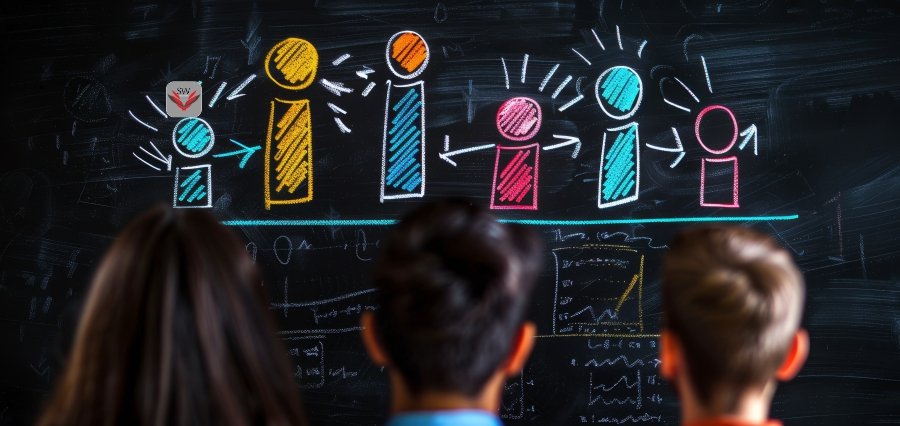Strategic Disruptions
The education sector was once defined by traditional classrooms and standardized curricula. By the end of 2024, changes in this sector will be comprehensive, triggered by advancing technologies, societal shifts, and changing student requirements, which are reshaping the way education is delivered.
Education leaders—administrators, policymakers and thought leaders—are leading the change for new initiatives that challenge conventional models. This includes the use of artificial intelligence, personalized learning experiences, and hybrid and flexible learning environments.
The one-size-fits-all approach to educational systems worldwide is slowly being replaced with more individualized, technology-driven methodologies. Education leaders are reconsidering teaching methods, administrative structures and assessment techniques in preparation for a complex world.
The demand for innovation is not simply about new tools but about redesigning the purpose of education itself. Behind the adaptation is the concept of strategic disruptions: targeted interventions that challenge entrenched practices, which in turn open a pathway to more effective, more inclusive learning.
As we consider how education leaders are transforming learning models, we will explore the nature of these disruptions, the technologies they are leveraging, and their broader impact on learners and educators.
Leveraging Technology for Personalization
The most important way education leaders are reconfiguring learning models is through technology, creating personalized learning experiences. Artificial intelligence, Machine Learning and Data Analytics help track student progress, identify areas for improvement and tailor content to meet individual requirements.
This shift away from uniform, rigid curricula allows for a more adaptive approach to learning where students can progress at their own pace, mastering concepts before moving on to more advanced topics.
Using these tools, education leaders can create a more inclusive educational environment for students of all backgrounds and abilities to have the necessary resources to succeed. Personalized learning also gives students more agency in their educational journey, empowering them to take ownership of their learning.
Hybrid Learning Models: Flexibility in Delivery
Many education leaders are now embracing the hybrid learning model because of increasing demands for more flexibility in learning. This model allows for a more flexible learning environment that caters to all kinds of diverse learning styles, schedules and locations.
Students can engage with materials synchronically, participate in live online discussions, or attend in-person sessions depending on their requirements. Issues around access were also addressed through hybrid models that allow students to face geographical, physical, or financial barriers to education.
Then, education leaders are focusing on platforms and infrastructure with which these hybrid experiences occur, further disrupting traditional class-based learning.
Collaborative and Interdisciplinary Learning
Education leaders are shifting away from the siloed nature of disciplines to interdisciplinary practices that promote interdisciplinary work. The reason behind this is that future challenges they will face, whether in the business world, technological world, or social development, are holistic; they require solving problems comprehensively.
This is to be done in an environment that allows students to interoperate across disciplines, utilizing diverse knowledge in solving real-world problems.
Such models generally incorporate project-based learning into the curriculum, whereby students apply themselves to real-world problems or issues. This promotes critical thinking and teamwork that prepares learners for the challenges of a world where interdisciplinary teams are commonplace in the workplace.
The Impact of Strategic Disruptions on Education
Disruptions in education are giving rise to innovative teaching, technologies and assessment. These disruptive practices challenge outdated models with more personalized learning, improving access and creating even more inclusive and collaborative school settings. The factors are shown as follows:
- Rethinking Assessments
Education leaders question the traditional methods of assessment like standardized tests. Many consider that these assessments do not represent a student’s true skills, creativity, or even problem-solving abilities.
Among the ongoing disruption, there is experimentation with more holistic forms of evaluation, such as project-based assessments, peer reviews and self-assessments. These alternative forms are designed to assess broader ranges of skills and better represent the complexities of real-world problem-solving.
- Equity and Inclusion in Education
The leaders of education are disrupting inequality in the accessibility of quality education. Strategic disruption focuses on the availability of the same quality learning materials for students regardless of their economic backgrounds. Some initiatives are available as Open Educational Resources (OER) that deliver free learning resources for use by anyone.
End Note
Through individualized learning, hybrid models, or more inclusive evaluations, 2024 education leaders are strategically disrupting the existing educational practices and changing the learning models to make the system more flexible, adaptive and egalitarian.
Educational leaders will continue playing a central role in the determination of the nature of the education to come as social demands and technological changes escalate. The educational environment continues to transform into new opportunities for students and teachers around the globe with a new focus on student-centered learning, collaboration and access.

